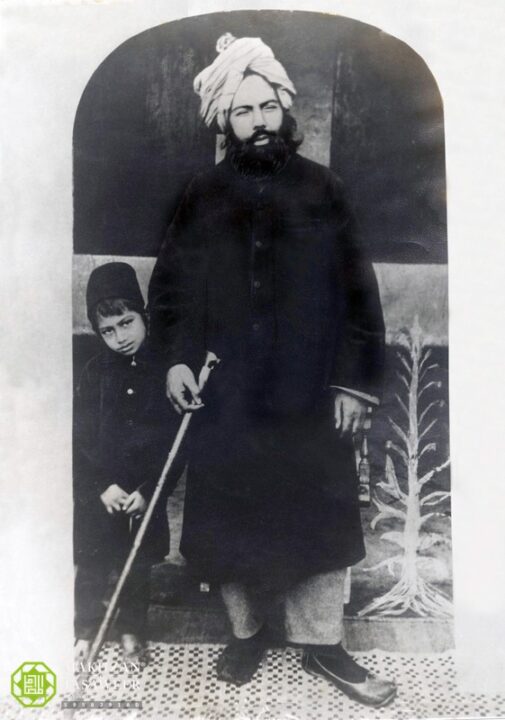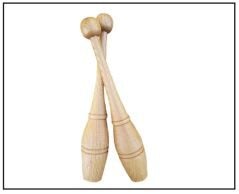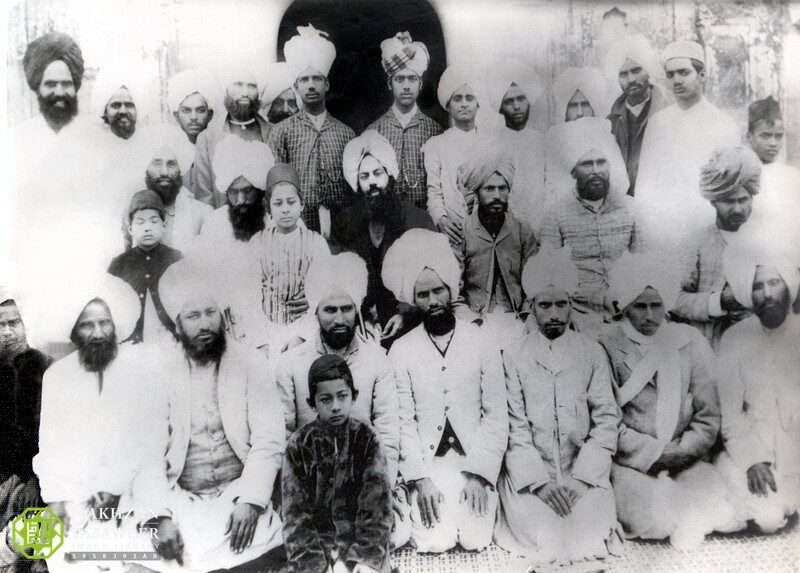Ataul Fatir Tahir and Awwab Saad Hayat, Al Hakam

Prophets of Allah are physically active and robust – not for vain pursuits, but to serve religion and worship.
The Holy Prophet Muhammadsa hiked up mountains (without the comfort of modern, well-maintained paths and equipment) in search of solitude to worship. He participated in defensive battles, fighting in the fiercest areas of war:
“[…] A narrator reports that when the Holy Prophetsa was sought during a battle, they would look for him in the area where combat was at its fiercest and he would always be in the midst.” (Hazrat Mirza Tahir Ahmadrh, The Seal of the Prophets – His Personality and Character, p.19)
The Prophetsa migrated from Mecca to Medina, travelling at least 338 km under the scorching sun of the Arabian desert. He encouraged fathers to teach their children swimming, archery and horse riding (Sahih Muslim) and was a tremendously competent horse rider himself with the skill to ride at speed even without a saddle.
The Holy Prophetsa declared:
الْمُؤْمِنُ الْقَوِيُّ خَيْرٌ وَأَحَبُّ إِلَى اللَّهِ مِنَ الْمُؤْمِنِ الضَّعِيفِ وَفِي كُلٍّ خَيْرٌ
“A strong believer is better and more beloved to Allah than a weak believer, and there is good in everyone […]” (Sahih Muslim)
The aim of the Prophetsa was not to show off or be physically active for vanity, his guiding compass was the worship of Allah – which meant fulfilling His rights and the rights of humanity. Physical health and strength assisted in this pursuit.
Hazrat Mirza Ghulam Ahmadas, the Messiah of Islam was also very physically active – though the majority of his time was spent in religious affairs. In terms of his physical exercise, he had the same purpose in mind; to serve Allah and Islam. Hazrat Ahmadas said:
“When I sit in public or go for a walk, and engage in discussions with others, I do all of this out of obedience to the command of Allah Almighty.” (Malfuzat [English], Vol. 2, p. 184)
Both the Prophetsa of Islam and Hazrat Ahmadas were the epitomes of Hazrat Musleh-e-Maud’s couplet that:
بهوليو مت كہ نزاكت ہے نصيبِ نسواں
مرد وه ہے جو جفاكش ہو گل اندام نه ہو
Always remember that tenderness suits a woman. A man is one who is robust and not lily-livered.
A physically active youth
Though the Promised Messiahas would spend most of his time worshipping, reading and even debating Christians in his youth, he was by no means inactive or lazy.
His son, Hazrat Mirza Bashir Ahmadra MA wrote that as a child the Promised Messiahas would at times swim in the ponds of Qadian and learnt horse riding while still young and became a competent rider. As a child, he would also sometimes go hunting using a slingshot. (Silsila Ahmadiyya, Vol. 1, p. 9)
Lifting weighted Indian Clubs
Describing the Promised Messiah’s participation in lifting weights for health, Hazrat Mirza Bashir Ahmadra MA writes:
“For staying healthy, he would at times exercise using mugriyan [Indian clubs: A method of weight training], and it is the narration of Hazrat Mirza Bashiruddin Mahmud Ahmad Sahib, Khalifatul Masih IIra that ‘I once saw him using mugriyan during his old age.’
“However, all of these aspects were solely for improving health, otherwise he never participated in such activities to the extent of being lost in them or wasting time.” (Ibid.)

Not shying away from physical hard work
Hazrat Musleh-e-Maudra said:
“Despite the fact he [the Promised Messiahas] was averse to the world, he was by no means lazy, rather he was extremely hard working and though he loved being alone, he would never be agitated by physical hard work. […]” (Sirat Hazrat Masih-e-Maud Az Hazrat Khalifatul Masih al-Sanira, p. 23)
It is important to note that in line with a prophecy of the Holy Prophetsa, that the Messiah would be wrapped in two yellow sheets, the Promised Messiahas suffered from ailments throughout his life. He had diabetes and at times his blood pressure would drop due to working hard.
Despite these illnesses he would work with great fortitude and was blessed with Allah’s support.
It is narrated that the Promised Messiahas would suffer extreme kidney pain. He would tightly tie a cloth around his abdomen and back and continue working whilst in this condition and also pray to Allah for relief. (Malfuzat, Vol. 4, p.336), (Tazkiratu-Shahadatain, Ruhani Khazain, Vol. 20, pp. 74-75)
This trait of the Promised Messiahas can be also be seen in the following incident narrated by Hazrat Pir Siraj-ul-Haqra Numani:
“The Promised Messiahas came to Masjid Mubarak at the time of Asr prayer. He had tied a bandage – that was soaking with water – on a finger on his left hand. At the time Maulvi Abdul Karim Sahib Sialkoti asked the Promised Messiahas why he had tied this bandage. While laughing, the Promised Messiahas said there was a bird that needed to be sacrificed and ‘the knife cut my finger’. The late maulvi sahib laughed too and humbly asked why he had done this. The Promised Messiahas said ‘There was no one else present’ [to sacrifice it].” (Sirat-ul-Mahdi, Vol. 1, narration 307)
An able and fast runner
Allama Syed Mir Hassan Sahib who spent considerable time with the Promised Messiahas in his youth when he worked in Sialkot, India narrated an incident about a race between the young Hazrat Ahmadas and a Sikh by the name Billa Singh. He said:
“Mirza Sahib’s outshining state and leadership in theology is known to all. However, his physical dominance in running had also become apparent to those present.
“The details and circumstances of this are that once, after being dismissed from court [where Hazrat Ahmadas worked in Sialkot], when the employees were returning home, there was a mention of running and someone said they should have a competition. Everyone began claiming they were the fastest in running.
“Eventually, a man named Billa Singh claimed, ‘I always take the lead in running competitions.’ Mirza Sahib [hearing this] replied, ‘Compete with me, then it will be proven who is faster.’
“Sheikh Elah Daad Sahib was appointed as the referee and it was decided that the run would start from the position where they were already standing and the finish line would be the bridge which was on the road of the court and served as the boundary of the city.
“They were also to run bare feet.
“A person took hold of their shoes and another person went towards the finish point at the bridge. Mirza Sahib and Billa Singh ran at the same time whilst the rest came behind them at a normal pace. When they reached the bridge, they found that Mirza Sahib had taken the lead, leaving Billa Singh behind him.” (Sirat-ul-Mahdi, narration 280)
A habit of walking long distances, fast
The Promised Messiahas was an avid walker and like the Holy Prophetsa of Islam, his pace was fast; those accompanying would often struggle to keep up. However, following his beloved Master, the Promised Messiahas held great dignity while walking at this pace as it was natural to him like it was natural to the Holy Prophetsa. A clear proof of this is that they didn’t get out of breath while walking fast, even whilst talking during the walk!
Hazrat Abu Hurairahra reported:
“[…] Nor have I seen anyone faster in his gait than Allah’s Messenger (Allah bless him and give him peace). The earth seemed to be folded up for him. We strenuously exerted ourselves [walking alongside him], while he was not subject to any stress.” (Ash-Shama‘il Al-Muhammadiyah 122, The Walking of the Messenger of Allah, book 18, hadith 1)
Describing the gait of the Promised Messiahas, Hazrat Shaikh Muhammad Naseebra narrated:
“While walking, he would walk fast and only the person who walked quickly could keep up. He would speak while walking too but would not get out of breath. […]” (Register Rawayat Sahabara, Vol. 15, pp. 29, [unpublished])
The Promised Messiahas was also known for being able to write while walking (Ibid) and even in his home, he would, at times, write while pacing from one end of the room to the other.
Hazrat Mirza Bashir Ahmadra MA writes:
“His most frequent exercise was walking which continued all his life. He would go for walks for miles on end and walked extremely fast.” (Silsila Ahmadiyya, Vol. 1, p. 9)

The Promised Messiahas would regularly go on walks after Fajr and at times would go in the evening too. Scores of narrations by his companions mention these morning walks during which the companions joined him and discussed religious matters.
Hazrat Syed Zia-ul-Haq Khanra Sahib records:
“Every day, after breakfast, we would accompany the Promised Messiahas on a walk. He used to walk extremely quickly to the extent that some who were accompanying him had to run.” (Register Rawayat Sahabara, Vol. 3, p. 57, [unpublished])
Hazrat Master Khalil-ur-Rahmanra narrates:
“Almost every day at around eight in the morning, the Promised Messiahas would leave for a walk with his companions. And Huzooras walked so fast that even the youth and children could not match Huzoor’s pace and the scene was such that everyone would almost be running [to keep up].” (Register Rawayat Sahabara, Vol. 4, p. 123, [unpublished])
Hazrat Musleh-e-Maudra narrated:
“Despite the fact he [the Promised Messiahas] was averse to the world, he was by no means lazy, rather he was extremely hard working and though he loved being alone, he would never be agitated by physical hard work.
“And many times, when he needed to travel, he would give the horse to the servant to go forth and would himself walk behind on foot for 20-25 Kos [Approximately 36-45 km] and reach his destination.
“In fact, he used to mostly travel on foot and hardly got on the horse and this habit of walking on foot continued until his old age. At more than 70 years of age, when he was suffering from some serious illnesses, he would go out for some fresh air almost every day and walk four to five miles and at times he would walk seven miles [at this age].
“He [the Promised Messiahas] would narrate that before old age he would sometimes leave for a walk before the morning salat […] and when would reach Wadala (a village approximately five and a half miles from Qadian on Batala road) it would be time for morning prayer [Fajr].” (Sirat Hazrat Masih-e-Maud Az Hazrat Khalifatul Masih al-Sanira, pp. 23-24)
Hazrat Sheikh Yaqub Ali Irfanira relates:
“This habit of his of walking was so common that when travelling on trains, whenever he had to wait for a train, he would constantly walk on the platform.” (Hayat-e-Ahmad, Vol I. p. 75)
In another narration, Hazrat Sheikh Yaqub Ali Irfanira described how the Promised Messiahas would walk while spending time in the mosque:
“In the mosque, he would often continue to walk. He enjoyed walking – and while lost in thought – would walk so much that the floor on which he would walk on would flatten to the extent that it could be differentiated from the rest of the floor.” (Hayat-e-Ahmad, Vol. 1, p. 81)
Staying active even in his final days
The Promised Messiahas passed away in Lahore on 26 May 1908. The days before, he was busy writing what would be his last book, Paigham-e-Sulh (A message of peace). He was accompanied by his family and some companions. During this time, he would go on walks in Lahore with his family, sometimes even twice a day.
Hazrat Bhai Abdu-ur-Rahmanra Qadiani narrates:
“When he was staying in Lahore, the Promised Messiahas would go for a walk outside almost every day with the women and children of his family. In fact, some days he would go for a walk in the morning and in the evening.” (Tatimma [appendix] Sirat-ul-Mahdi, Vol. 2, pp. 378-379)
Prophets of Allah, including the Promised Messiahas are given lives that best serve the faith and enable worship of Allah. The physical exercise the Promised Messiahas engaged in was to improve his health to carry out his grand Jihad of the pen.
This can be understood by the following quote of the Promised Messiahas regarding children who have to exercise as part of their routines in school:
“[…] in schools, along with education it has been made compulsory for the boys to exercise for a specific amount of time. From this exercise, discipline, etc. it cannot be that the aim of those in charge of the education department is to prepare the boys for some sought of a fight, nor can it be for wasting time; letting the boys spend their time in mere play. Rather, it is for the body parts which require movement – if they are left without activity their strength and abilities will weaken and go to waste and in this way [through exercise] this element is fulfilled. […]” (Malfuzat, Vol. 3, p. 2)

